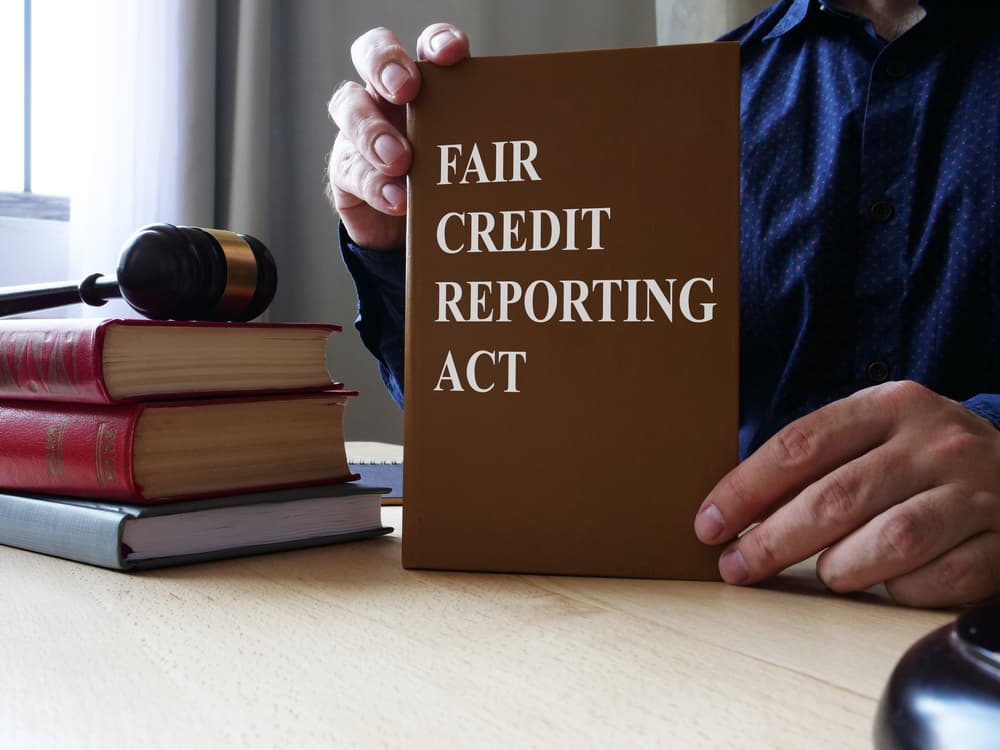If you're a business owner or employer in San Diego, you must understand your obligations under the Fair Credit Reporting Act (FCRA).
The FCRA is a federal law that regulates how consumer reporting agencies collect, use, and share information about consumers. It also sets out requirements for employers who use consumer reports to make employment decisions.
Failure to comply with the FCRA can result in significant legal and financial consequences, including fines, lawsuits, and damage to your reputation. In this blog, we'll provide guidance on FCRA compliance in San Diego to help you stay on the right side of the law.
Understanding the FCRA

The FCRA protects consumers from inaccurate or unfair credit reporting practices. It applies to consumer reporting agencies (CRAs) that collect and sell information about consumers, such as credit reports, criminal background checks, and employment history.
Under the FCRA, CRAs must follow certain procedures to ensure that the information they collect and report is accurate, up-to-date, and relevant. They must also provide consumers with access to their own information and the ability to dispute any errors or inaccuracies.
In addition to regulating CRAs, the FCRA also sets out requirements for employers who use consumer reports to make employment decisions, such as hiring, promoting, or terminating employees.
FCRA Requirements for Employers
Every employer in San Diego who uses consumer reports to make employment decisions must follow several key requirements under the FCRA:
Disclosure and Authorization
One of the key requirements of the FCRA is the disclosure and authorization requirement. Before obtaining a consumer report on a job applicant or employee, you must provide them with a clear and conspicuous disclosure that you may obtain a report for employment purposes.
This disclosure must be in writing and in a stand-alone document, meaning you cannot bury it in an employment application or other document.
The disclosure must inform the individual that a consumer report may be obtained for employment purposes and must specify the type of report that may be obtained (e.g., credit report, criminal background check, etc.). It must also explain that the individual has the right to request additional information about the nature and scope of the investigation.
In addition to the disclosure, you must also obtain the individual's written authorization to obtain the consumer report. You can include this authorization in the same document as the disclosure, but in a separate section that requires a separate signature or initials from the individual.
The disclosure and authorization requirement applies to all consumer reports obtained for employment purposes, regardless of whether the individual is ultimately hired or promoted. This means that you must provide the disclosure and obtain authorization even for initial background checks conducted on job applicants.
To ensure compliance with the disclosure and authorization requirement, use a standardized form that legal counsel has reviewed. Use a clear, concise, and easy to understand form without any extraneous information or misleading language.
Pre-Adverse Action Notice
If you intend to take an adverse action against a job applicant or employee based on information contained in a consumer report, you must first provide them with a pre-adverse action notice.
An adverse action is any action that hurts the individual's employment status, such as denying employment, terminating employment, or denying a promotion.
The pre-adverse action notice must include a copy of the consumer report that you relied on to make your decision, as well as a copy of the individual's rights under the FCRA.
The notice must also inform the individual that they have the right to dispute the accuracy or completeness of the information contained in the report, and provide them with the name, address, and phone number of the consumer reporting agency that supplied the report.
The purpose of the pre-adverse action notice is to give the individual an opportunity to review the report and correct any errors or inaccuracies before the adverse action is taken.
The FCRA requires that you wait a reasonable amount of time after providing the pre-adverse action notice before actually taking the adverse action to allow the individual time to dispute the report if necessary.
Adverse Action Notice
If, after providing the pre-adverse action notice and waiting a reasonable amount of time, you ultimately decide to take an adverse action based on information contained in a consumer report, you must provide the individual with an adverse action notice.
The adverse action notice must include:
- The name, address, and phone number of the consumer reporting agency that supplied the report
- A statement that the consumer reporting agency did not make the adverse decision and cannot explain why the decision was made
- A statement of the individual's right to obtain a free copy of their consumer report from the consumer reporting agency within 60 days
- A statement of the individual's right to dispute the accuracy or completeness of any information in the report with the consumer reporting agency
The notice informs the individual of the basis for the adverse decision and to give them an opportunity to correct any errors or inaccuracies in the report.
Disposal of Records
When you no longer need a consumer report that you obtained for employment purposes, you must securely dispose of it to protect against unauthorized access or use. This includes both physical copies of the report and electronic copies stored on your computer or other devices.
The FCRA requires that you take reasonable measures to protect against unauthorized access to or use of the information in connection with its disposal.
This means that you cannot simply throw the report in the trash or delete it from your computer without taking additional steps to ensure that unauthorized individuals cannot reconstruct or access it.
Some examples of reasonable measures for disposing of consumer reports include:
- Burning, pulverizing, or shredding physical copies of the report
- Destroying or erasing electronic files containing the report
- Conducting due diligence on and entering into contracts with companies engaged in the business of record destruction to dispose of material specifically identified as consumer report information in a manner consistent with the FCRA
Have a written policy in place for disposing of consumer reports that outlines the specific steps that must be taken to ensure compliance with the FCRA. You should also train your employees on the proper procedures for disposing of consumer reports and conduct regular audits to ensure that the policy is being followed.
By taking these steps to securely dispose of consumer reports, you can help protect the privacy and security of the individuals whose information is contained in the reports and avoid potential legal liability for unauthorized access or use of the information.
Best Practices for FCRA Compliance
In addition to following the specific requirements of the FCRA, to ensure compliance and protect your business:
- Use a Reputable CRA: When obtaining consumer reports, use a reputable CRA that follows FCRA requirements and has a track record of providing accurate and up-to-date information.
- Provide Clear Disclosures: Make sure your disclosure and authorization forms are clear, concise, and easy to understand. Avoid using legal jargon or burying important information in fine print.
- Keep Records: Maintain records of all disclosures, authorizations, and notices provided to job applicants and employees. This can help you demonstrate compliance if a dispute arises.
- Train Your Staff: Make sure your HR staff and any other employees involved in the hiring process are trained on FCRA requirements and your company's compliance policies and procedures.
- Review Your Policies: Regularly review your policies and procedures for FCRA compliance to ensure they are up-to-date and effective. Consider conducting an annual audit to identify any areas for improvement.
What to Do if You Receive an FCRA Complaint
If you receive a complaint from a job applicant or employee alleging an FCRA violation, take it seriously and respond promptly.
Here are some steps you can take:
Investigate the Complaint
When you receive an FCRA complaint from a job applicant or employee, the first step is to conduct a thorough investigation. This investigation should be prompt, impartial, and well-documented.
Start by gathering all relevant information and documents related to the complaint, such as:
- The consumer report in question
- Any disclosures, authorizations, or notices provided to the complainant
- Any adverse action taken based on the report
- Any correspondence or communication with the complainant
- Any relevant company policies or procedures
Next, interview any employees or individuals involved in the situation, such as the hiring manager or HR staff who obtained or used the consumer report. Ask them to provide a detailed account of what happened and any steps they took to comply with the FCRA.
Review all of the information gathered to determine if there was a violation of the FCRA or your company's policies.
Consider factors such as:
- Was the complainant provided with the required disclosure and authorization before the report was obtained?
- Was the complainant provided with a pre-adverse action notice and a copy of the report before any adverse action was taken?
- Was the complainant provided with an adverse action notice after the adverse action was taken?
- Was the consumer report used for a permissible purpose under the FCRA?
- Was the consumer report accurate and up-to-date?
If the investigation reveals a violation of the FCRA or your policies, document the violation and any corrective actions taken in response.
Respond to the Complainant
Once you have completed your investigation, it's important to respond to the complainant in writing.
Your response should include:
- An acknowledgment of their complaint
- A summary of your investigation and findings
- An explanation of any corrective actions taken
- An apology if a violation occurred
- Contact information for further questions or concerns
Be clear, concise, and professional in your response. Avoid using legal jargon or admitting liability, but do take responsibility if a violation occurred.
If the investigation did not reveal a violation, explain this to the complainant and provide the basis for your conclusion. Be prepared to provide additional information or documentation if requested.
Take Corrective Action
If your investigation reveals a violation of the FCRA or your company's policies, it's important to take prompt corrective action to address the issue and prevent future violations. The specific corrective action will depend on the nature and severity of the violation but may include:
- Providing the complainant with the required disclosures, notices, or copies of their report
- Revising or rescinding any adverse action taken based on the report
- Updating your policies or procedures to ensure compliance with the FCRA
- Providing additional training to your staff on FCRA requirements
- Disciplining or terminating employees who violated the FCRA or your policies
- Notifying any third parties who may have been affected by the violation
Document all corrective actions taken and keep records of any changes to your policies or procedures.
Consider Legal Counsel

Depending on the nature and severity of the FCRA complaint, seek legal counsel to resolve the situation and protect your business.
Situations where legal counsel may help include:
- If the complaint involves a systemic or widespread violation of the FCRA
- If the complaint involves a high-profile or high-stakes situation, such as a senior executive or a large number of affected individuals
- If the complaint is likely to result in legal action, such as a lawsuit or government investigation
- If you are unsure of your obligations under the FCRA or how to respond to the complaint
An experienced attorney can:
- Conduct a thorough and impartial investigation
- Identify any legal risks or liabilities
- Develop a strategy for responding to the complaint and any legal action
- Communicate with the complainant or any third parties involved
- Represent your interests in any legal proceedings
When selecting legal counsel, look for an attorney with experience in FCRA compliance and employment law. Consider factors such as their track record, reputation, and communication style.
Seeking legal counsel can ultimately save you time, money, and stress in the long run by helping you avoid costly legal mistakes and protecting your business.
FCRA Enforcement and Penalties
The FCRA is enforced by the Federal Trade Commission (FTC) and the Consumer Financial Protection Bureau (CFPB). These agencies have the authority to investigate complaints, conduct audits, and take legal action against companies that violate the FCRA.
The FCRA allows for statutory damages of up to $1,000 per violation, plus actual damages, punitive damages, and attorneys' fees. In addition, the FTC and CFPB can seek civil penalties of up to $4,111 per violation.
To avoid these penalties and protect your business, it's essential to prioritize FCRA compliance and take proactive steps to follow all applicable requirements.
Contact a Lawyer for any Concerns About FCRA Compliance

Any San Diego business that uses consumer reports for employment purposes must comply with the FCRA. By understanding your obligations under the law, following best practices for compliance, and taking prompt action to address any issues that arise, you can protect your business and maintain the trust and confidence of your employees and customers.
If you have questions or concerns about FCRA compliance, don't hesitate to seek guidance from legal counsel or other trusted advisors. With the right knowledge and support, you can navigate the complex landscape of the FCRA and build a strong, compliant business.